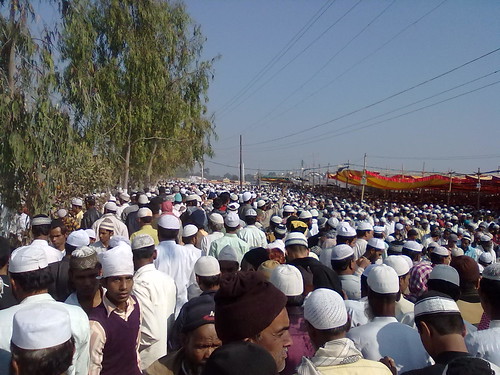By Wasim Ahmad,
For long I have been wondering why we talk about Muslims so much? Now it appears to me that it is merely a fashion and a noble pastime. We get conditioned to this culture and fashion learning it very well from the older generations and the environments we grow in. We notice it at every level and in every place. All possible means and platforms are being used for talking about Muslims. One amount of talking leads to an increased amount of talking. It is one of the trendy things to do. Talking about Muslims is a fashion which is always in fashion.
Those who are well settled and have some or a lot of free time they indulge in this entertaining and self-aggrandizing exercise and earn some name and fame in doing so. They become the community leaders and have become uncountable. I sincerely wish we didn’t have so much concern about Muslims that we did not have time to find out the reasons of this concern. I wish we weren’t so busy treating this patient that we forgot to conduct some tests for diagnosing the disease first.

A scene of 63rd International Tablighi Ijtima held in Dec 2010 in Bhopal
When we shed a lot of tears about Muslims it gives us sadistic delight. It shows that we are much better off than those wretched creatures. In other words we say, “See how different am I? I am a class apart! I am so much different!” Profuse talking about Muslims is an expression and reinforcement of a herd-mentality at its best or worst. It is symptomatic of the fact that we do not think twice about the things that we talk about and do. This is one of those fashions which is not getting old. Talking about Muslims is always in vogue.
We look for excuses to talk about Muslims – of which we get plenty. A recent example is the case of Anna Hazare. It provoked many to ask why there is no Anna Hazare in Muslims. I always wonder that those who yearn for Anna Hazares why don’t they become Anna Hazares themselves. They are the most qualified ones for the job because they know that there is a need for Hazares more than anybody else. It reminds me of a nikaah ceremony. The khateeb fervently prayed many times over that a Salahuddin Ayyubi is born to the newly married couples. I wondered why he did not have any such hope from the already married ones and why he did not become Salahuddin Ayyubi himself knowing the urgent need of one – more than anybody else.
The same applies to our yearning and crying for Sir Syed Ahmad Khans and Muhammad Iqbals. Those who lament for them are obliged to become a Syed and an Iqbal. They are obliged because they are the ones who realize their need more than anyone else. The ones who realize a particular need the most are most obliged to supply what is needed. If they do not become what they think is needed the most it will be a breach of trust and they will be held accountable for the absence of Syeds and Iqbals.
But our job ends at lamenting and praying. Why do we expect a lot from (other) Muslims (and not from ourselves) is not of much concern. We want different things from Muslims but don’t do anything different for that. We keep doing the same things and keep asking for different results. But this is not a concern. Because the concern for the Muslims is the only concern. The fashion of talking about the Muslims is always in fashion – come what may.
What is not in fashion is to find out what are the reasons of this talking and concern? We get different reasons for this – none of those qualifies to be called a reason. Poverty, backwardness and number (which is always less than desired) is not the prerogative of Muslims. If the economic condition of Muslims is the reason then what about those who are poorer than Muslims? They deserve to be talked about even more. If educational backwardness is the reason then they aren’t the only ones to occupy that rung.

